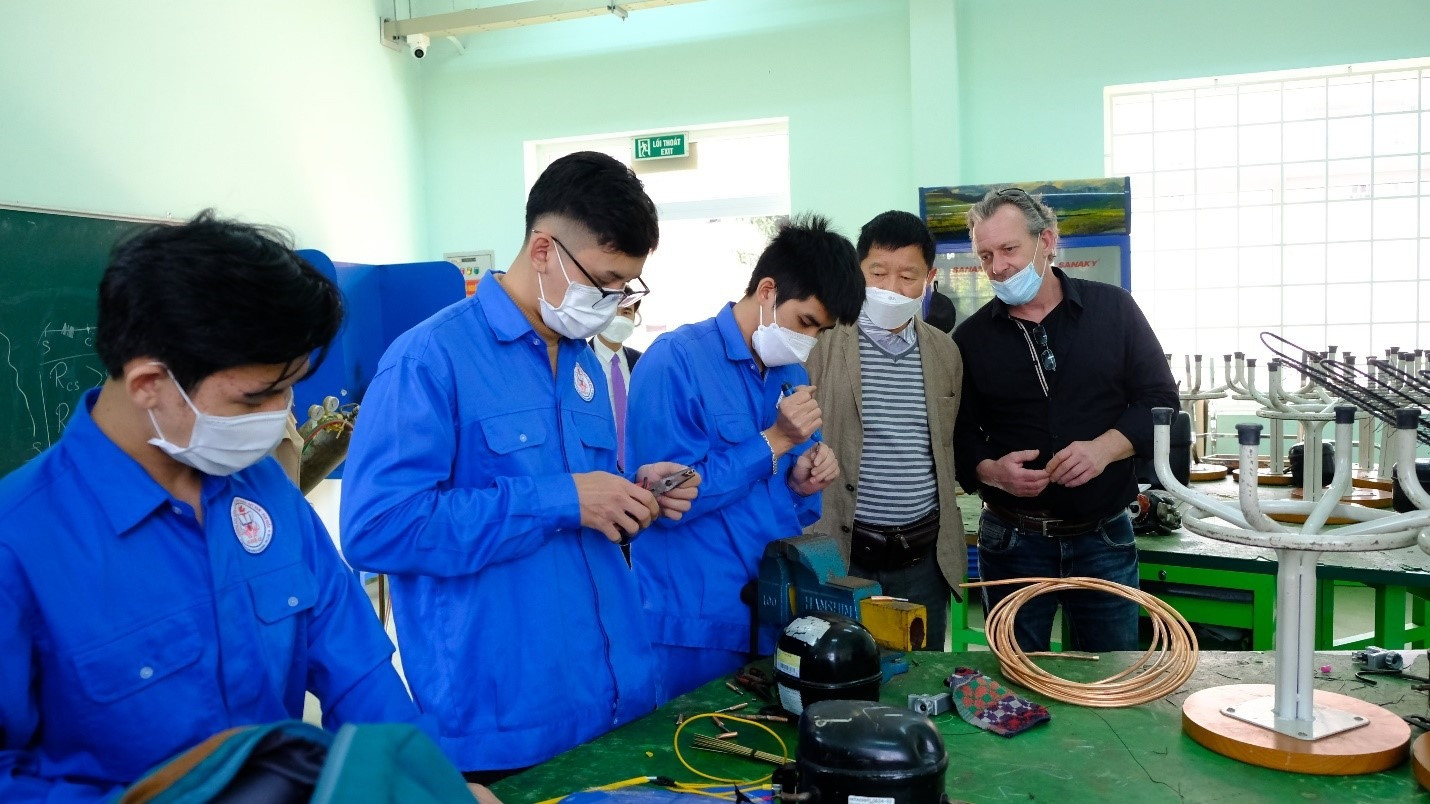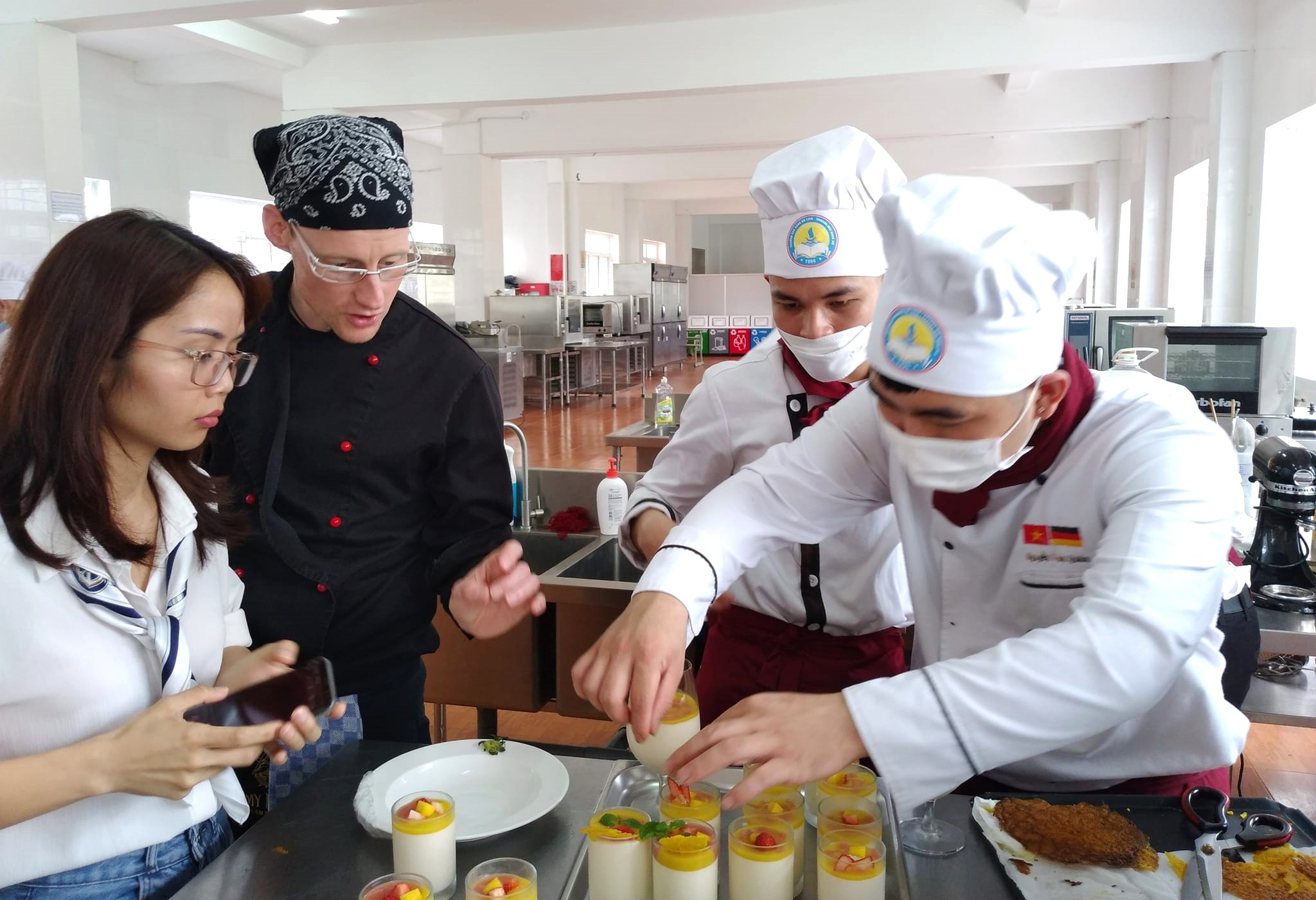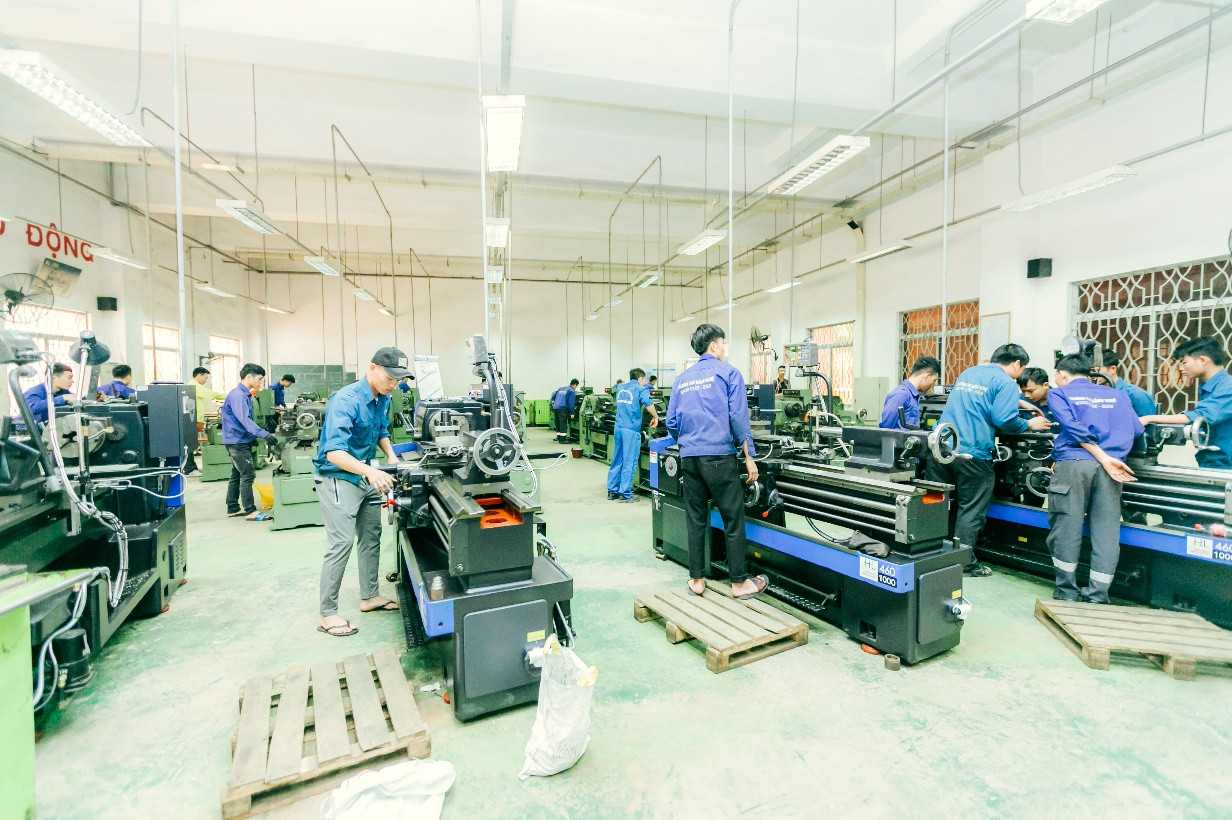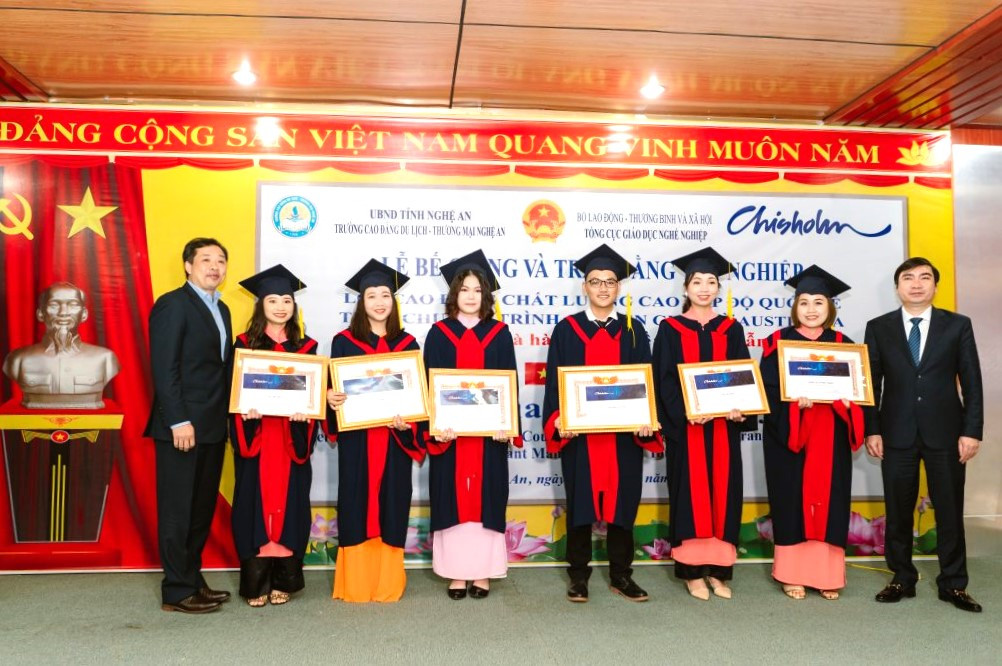Nghe An promotes vocational training according to international standards
(Baonghean.vn) - In order to improve the quality of the province's human resources and meet the requirements of international integration, in recent years, a number of vocational training institutions in Nghe An have promoted training in key international-level occupations according to transfer programs from abroad.
Widening opportunities to participate in the high-income labor market
According to the list of facilitiesvocational educationLicensed to train key international-level occupations, Nghe An currently has two schools: Vietnam - Korea Industrial Technical College and Nghe An College of Tourism and Commerce, currently training 13 international-level occupations.
At the Vietnam - Korea Industrial Technical College, among the 13 occupations (both intermediate and college level) that the school is organizing training, there are 7 key occupations at the international level including: Automotive Technology, Welding, Industrial Electronics, Electrical Installation and Control Engineering in Industry, Industrial Electricity, Mechanical Equipment System Maintenance, Refrigeration and Air Conditioning Engineering.

Of these, there are 4 occupations that have had their training programs transferred from abroad, including: Automotive Technology, Mechanical Equipment Maintenance (transferred from Germany), Industrial Electrical Installation and Control Engineering, and Air Conditioning and Refrigeration Engineering (transferred from Australia).
This is the 5th year that the Vietnam - Korea Industrial Technical College has been training according to international standards. With the 7 professions mentioned above, the school enrolls more than 500 college students each year. With the professions under the transfer program from the Federal Republic of Germany, students are trained for 3 and a half years, with full teaching equipment according to German standards, and are directly instructed by German experts.
In addition, students also benefit and receive support from the State's target program for vocational education and key occupations. During the training process, students learn German and will take the exam to obtain a B1 German certificate. After graduation, if students meet the requirements, they will be awarded a Vietnamese practical engineering degree and a German diploma, equivalent to level 4 according to the German national qualification framework.
Student Mai Duc Hung (majoring in Mechanical Equipment Maintenance) said: "Participating in a vocational training class according to German standards, in addition to studying theory thoroughly, we also have the opportunity to practice at large enterprises in and outside the province."
Job opportunities and the door to the international labor market with high income are wide open for students studying vocational training under foreign transfer programs with international degrees recognized by many countries and valid in all labor markets.
-Mr. Ho Van Dam - Principal of Vietnam - Korea Industrial Technical College.
Nghe An College of Tourism and Commerce is currently also training 6 key international-level occupations, according to Australian and German standards, including: Culinary Arts, Hotel Management, Restaurant Management, Tour Guide, Travel Management and Reception Management.

Mr. Che Hong Duong - Vice Principal of the school said: Enrollment and training of students in these professions is quite favorable. During the study period, students will have the opportunity to go on field trips and do internships with support from 3 - 5 million VND/month. In addition, if needed, students can participate in English, German, Japanese, Korean courses and are eligible to be introduced to work in these countries with salaries from 1,000 - 2,000 USD/month. Students of the school receive relatively good salaries upon graduation.
According to Mr. Hoang Sy Tuyen - Head of Vocational Education Department (Department of Labor - Invalids and Social Affairs), for the international key vocational training program, after finishing the theory, students will have to practice the skills of that part (module training). During the study process, students will intern at businesses with professions suitable for the training program. Right during the internship period, they can make many useful products, contribute to the development of the business, and at the same time be attracted to large businesses with preferential policies and good income levels.
Difficulties to overcome
Despite such advantages, according to Mr. Hoang Sy Tuyen, training key vocational skills according to international standards still faces many difficulties, first of all in terms of mechanism. The Law on Vocational Education took effect from July 1, 2015, but the standards, norms, and regulations related to program transfer and training according to international standards are not clear, so the pilot and implementation process is still confusing.
In addition, with the international vocational training program, the role of enterprises is very important, because the time for skills training takes up a lot (from 70-80%), learners are required to study at enterprises. However, currently there is no binding policy for enterprises to participate in vocational training. On the other hand, many enterprises, especially enterprises in the province, have not clearly seen their benefits in this activity, so they are not interested in coordinating vocational training.

Another difficulty in international vocational training is the entry level of students. Accordingly, vocational training according to international standards requires that high school students have average or above average academic ability, including foreign language proficiency, and after completing the course, their foreign language proficiency is equivalent to B1 or B2. Foreign language criteria have made it difficult for schools to recruit students or have recruited students but students cannot keep up with the training program.
On the other hand, through discussions with the leaders of the Vietnam - Korea Industrial Technical College and Nghe An College of Tourism and Commerce, it is known that both schools are currently lacking teachers in key international-level professions. For example, the Vietnam - Korea Industrial Technical College is currently lacking 5 teachers in the professions of Electrical Installation and Control Engineering in Industry, Industrial Electricity and Mechanical Equipment Maintenance. The Nghe An College of Tourism and Commerce is lacking 14 teachers in all 6 international-level professions.

In addition, most local vocational teachers currently do not have enough foreign language skills to communicate, research documents or teach in foreign languages. However, support for sending teachers to study abroad and access to international vocational training levels is still limited, depending heavily on the support budget of the Central and local governments.
In order for international-level key vocational training to be truly effective, vocational training institutions need to promptly update changes in technology and science and include them in training programs to improve training quality; strengthen facilities, equipment and create the most favorable conditions for learners in the process of practicing vocational skills to keep up with new training trends.
Along with that, schools need to proactively improve professional qualifications, especially foreign languages and information technology for teaching staff in the current situation of deeper and deeper integration and development with countries in the region and the world.
- Ms. Ho Thi Chau Loan - Deputy Director of Department of Labor, War Invalids and Social Affairs


